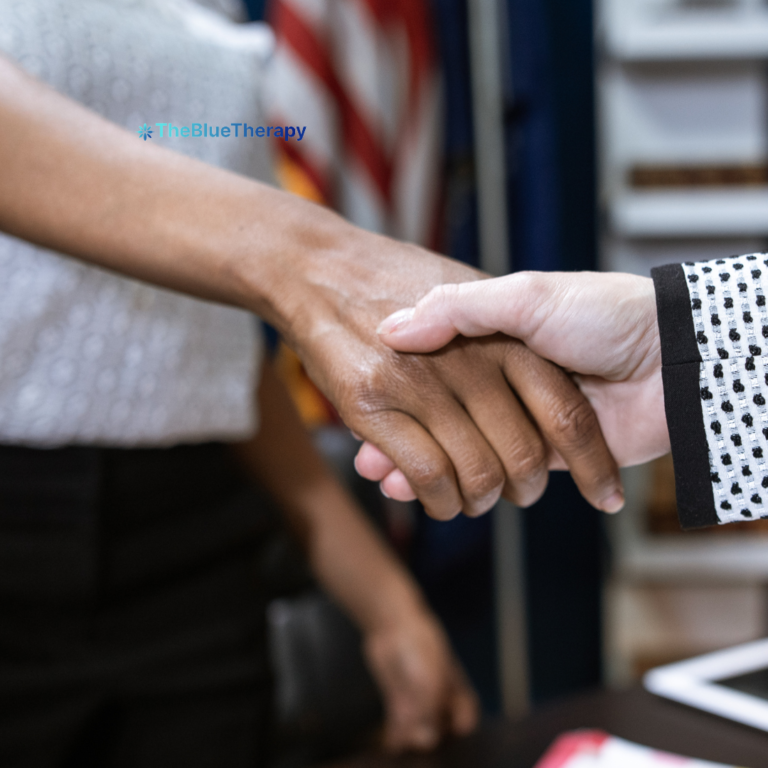Why Rapport Building is Important?
In therapy, ‘rapport’ refers to the relationship between the client and the therapist. It is the most important part of therapy and without it, progress cannot be made.
To have a positive connection with people, certain characteristics are needed, like trust, communication, empathy, and understanding of how the relationship works.
The best way to build rapport is by showing genuine interest and really listening. You, as a therapist, have to be truthful and show that you are interested to earn that trust and comfort in the relationship.
What is Rapport?
Rapport is a relationship in which the therapist simply clicks with the client (Reiman, 2007). It is also a continuous process that must be nurtured during each session.
It’s the feeling of being heard, understood, and respected. A strong therapeutic alliance is predictive of a desirable treatment outcome (Horvath et al, 2011).

Importance of Rapport Building in a Therapeutic Setting
In therapy, people often talk about tough feelings and experiences. To do this, without feeling judged, it’s essential to have a trusting relationship.
Knowing that your therapist won’t judge you and respect you comes from building a good relationship.
If there’s no connection, it can be really hard to proceed with therapy, as it can sometimes be uneasy. According to Joe, Simpson, Dansereau, and Rowan-Szal (2001), when there’s not much of a therapeutic connection, there are higher chances of problems such as criminal behaviour and substance abuse surfacing.
How to Build Rapport in Practice?
There are several ways to build trust and improve rapport in a therapeutic setup. Here are some curated practices, which The Blue Therapy speaks about!
- Active Listening:
Active listening involves really focusing, understanding, responding and remembering what the client is saying. This is the most crucial step for building a good rapport in therapy. Listening is not just hearing words, it’s also understanding the emotions, the thoughts behind them, and also the underlying meaning.
Sometimes, it’s important to ask for clarification at certain stages to make sure you are at par with what your client conveys.
- Empathetic understanding
Empathy is the ability to understand and share the feelings and emotions of another person. Empathy means ‘stepping into another person’s shoes’. Confirming and showing that you understand what your client has gone through makes them feel validated, acknowledged and supported.
Clients should feel okay about their emotions and know it’s safe to talk about them with you.
- Authenticity
Authenticity means being real and genuine. A therapist should be themselves rather than pretending to be perfect or adopting a different persona. Distrust or sharing something you haven’t experienced is a solid way to deteriorate a therapeutic relationship. Being genuine with your reactions, responses, emotions and thoughts will help your therapeutic alliance be transparent and trustworthy. A client can sense when you are being sincere.
- Respect
Clients need to feel in control of their therapy process. Every client seeking help deserves to be treated with respect, just like you’d want for yourself. Showing respect is another important foundation for building a good therapeutic alliance. You should establish and respect boundaries within your therapeutic relationship.
Try not to judge them for what information they share and rather accept them for who they are.
- Non-verbal Communication
Non-verbal cues like body language, gestures, facial expressions, and tone of voice play a big role in grasping what the client is feeling. A therapist should always lean forward and sit in a setting where the client feels comfortable talking. Appropriate eye contact is necessary; facial expressions should convey warmth and empathy.
There should also be a consistency between the verbal and the non-verbal cues to build trust.
- Self-disclosure
To have a healthy alliance between a client and a therapist, sharing experiences works both ways. Self-disclosure shows that you are a human as well and that you can relate to them. However, oversharing and not allowing the client to understand or react to your words can cause a mix of emotions and can bring up boundary issues.
Conclusion
Rapport building does not mean making a client dependent on their therapist. Instead, it guides a path for the client to take charge of their healing journey. Since each client is different, what helps one might not help another. You, as a therapist, need to be flexible in your approach to adapt techniques to meet the specific needs of each client. Encouraging clients to set goals, make choices that suit them, and develop healthy coping strategies is crucial. Being adaptable like this shows respect and helps the client feel empowered.
Are you a therapist looking to understand more about rapport building? Connect with us!
References
- Horvath, A., Del Re, A., Flückiger, C., & Symonds, D. (2011). Alliance in individual psychotherapy. Psychotherapy, 48, 9–16.
- Joe, G., Simpson, D. D., Dansereau, D., & Rowan-Szal, G. A. (2001). Relationships between counselling rapport and drug abuse treatment outcomes. Psychiatry Services, 52(9), 1223–1229.
- Reiman, T. (2007). The power of body language: How to succeed in every business and social encounter. Pocket Books.


